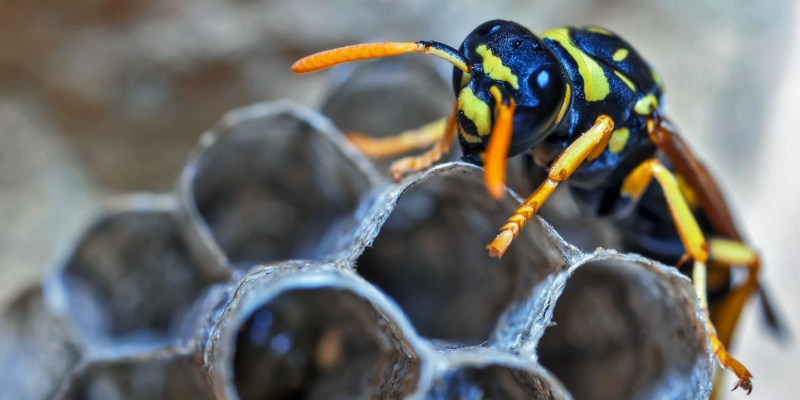Dealing with wasps in your yard can be a nerve-wracking experience, especially if you’re concerned about the safety of children and pets. These stinging insects become particularly active during the warmer months, drawn by the smells of food and the abundance of garden activities. Whether it’s a backyard barbecue or kids playing on the lawn, the presence of wasps can turn pleasant outdoor time into a stressful ordeal.
Understanding Wasp Behavior
First, it’s important to understand what attracts wasps. These insects are not only drawn to protein-rich foods but also to sweet substances. During certain times of the year, primarily late summer and early fall, their diet shifts from proteins to sugars, making your outdoor dining area particularly appealing. Wasps can be aggressive, especially if they feel their nest is threatened, which is why managing them carefully is crucial.
Immediate Steps to Take
If you notice an increase in wasp activity or spot a nest, here are some immediate steps you can take to minimize the risks:
- Avoid Sudden Movements: Swatting at wasps can provoke them to sting as a defense mechanism. It’s best to stay calm and move slowly if you find yourself near wasps or their nest.
- Manage Attractants: Keep your eating areas clean. Use tightly sealed containers for food storage and garbage disposal. Cover food during outdoor events, and clean up any spills immediately. Regularly check and clear away potential wasp food sources, such as fallen fruits or exposed pet food.
- Check for Nests: Inspect your property regularly for wasp nests. Common places include under roof eaves, behind shutters, or in bushes. If you find a small, less active nest, you might be able to remove it yourself using protective clothing and proper equipment during the cooler hours of the evening or early morning. However, for larger or more active nests, professional removal is the safest option.
Professional Wasp Control
Professional wasp removal services are invaluable for dealing with larger infestations or when nests are located in hard-to-reach areas. Pest control experts are equipped with the necessary tools and protective gear to safely remove wasp nests. Pros can also provide strategic advice tailored to your specific situation, helping prevent future infestations.
Pest control pros can perform an assessment to identify the species of wasp, the location of nests, and the best approach for removal and prevention. The techniques they use may include physical removal of the nest, application of insecticides, or setting up traps and barriers to keep wasps away from living areas.
Preventative Measures
Aside from immediate removal, there are preventative measures you can take to make your yard less inviting to wasps:
- Landscape Wisely: Certain plants can attract wasps due to their flowers or fruit. Consider consulting with a landscaping expert to select plants that are less attractive to wasps.
- Maintain Your Yard: Regular maintenance helps reduce the spaces where wasps can nest. Keep trees and hedges trimmed, and clear out old sheds or piles of debris where wasps could establish new homes.
- Use Decoys and Traps: Setting up wasp decoys to mimic enemy nests can deter new colonies. Additionally, wasp traps can capture wandering individuals and reduce the population near your activity areas.
Taking these steps can help you manage wasp problems effectively, reducing the risk of stings and making your outdoor spaces safer and more enjoyable for everyone. If wasps become a recurrent problem, maintaining a relationship with a pest control service can provide peace of mind and ongoing protection for your home and garden.
